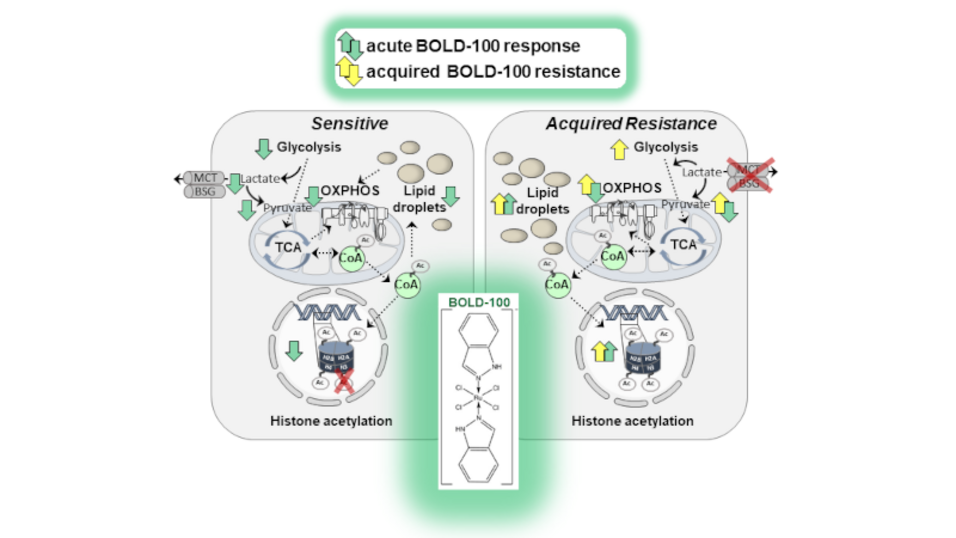The paper by Dina Baier et al. from the Cluster Translational Cancer Therapy Research headed by Prof. Bernhard Keppler (Institute of Inorganic Chemistry, University of Vienna) and Prof. Walter Berger (Center for Cancer Research, Medical University of Vienna) recently published in Advanced Science identifies an important role of the cellular lipid metabolism in the anticancer mode-of-action of the clinically investigated first-in-class anti-Warburg ruthenium complex BOLD-100. The authors show that BOLD-100 interferes with glycolysis reducing cellular lactate secretion as well as lipid stores, and recognize the ruthenium compound as epigenetic gene expression modulator via deregulation of histone acetylation. Augmented lipid metabolism is highlighted as a key driver of acquired BOLD-100 resistance fueled by increased glycolytic activity. Those novel findings are translated into the in vivo situation, opening up new avenues for specific targeting and reversal of BOLD-100 therapy resistance with direct relevance for the clinical situation.
The full paper The Lipid Metabolism as Target and Modulator of BOLD-100 Anticancer Activity: Crosstalk with Histone Acetylation is available open access at Advanced Science.
New study about the mode of action of BOLD-100 (KP1339)
14.11.2023

